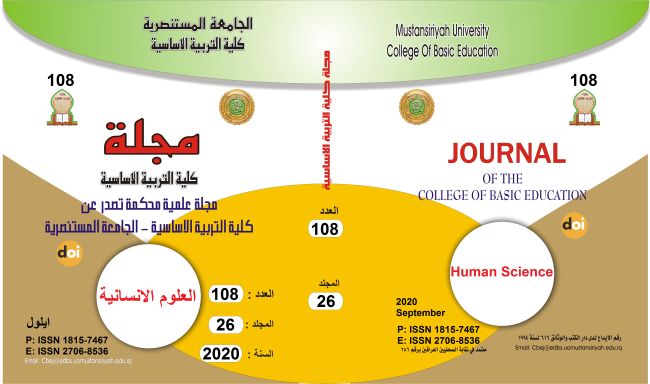William Butler Yeats' Political Views of Rising in Easter 1916
Main Article Content
Abstract
It has been 103 years since the Rising of Easter 1916 had broken in Ireland. Yet, there are still far reaching questions regarding the real political views of William Butler Yeats in his famous poem Eater 1916. William Butler (1865-1939) is one of the poets who wrote about the events in their country in general and about the Rising of Easter1916 in particular. Butler as an Irish poet is expected to believe and support this rising, but as a protestant who spent most of his youth in London, should refuse and denounce The Easter Rising 1916. Yeats belongs to the protestant who was controlling the political, social, and economic life of Ireland. For this reason, many people suspected his loyalty and accused him of lacking the sense of Irish nationalism and patriotism. However, Yeats attacked his Irish contemporaries who under evaluates his nationalism, saying that every man born in Ireland should belong to it, and if a man considers himself an Irishman then he is indeed a part of Ireland. This research states how Yeats was insisting on his Irish nationality in spite of the fact that he had spent most of his life living out of Ireland and he belongs to the Anglo section through analyzing important and relevant lines from his historical and patriotic poem, Easter1916. Additionally, some relevant messages between the poet and, his friends will be stated to support his views. It is concluded that W.B. Yeats positively expresses his Irish nationality and support of independence through his poem Easter 1916
Article Details

This work is licensed under a Creative Commons Attribution-ShareAlike 4.0 International License.
